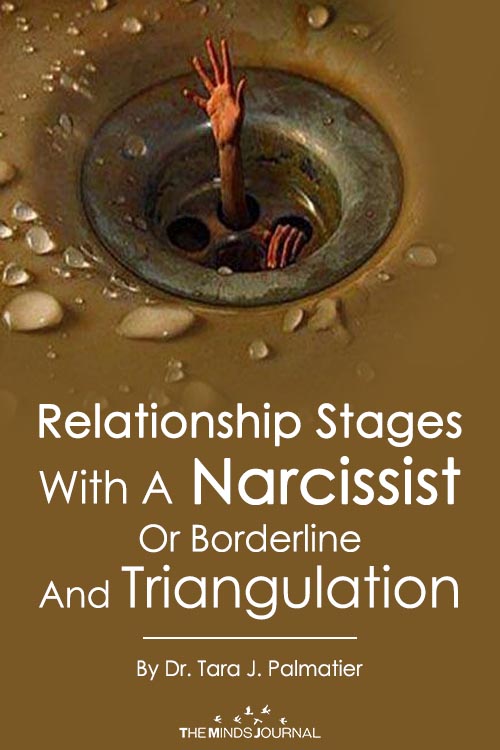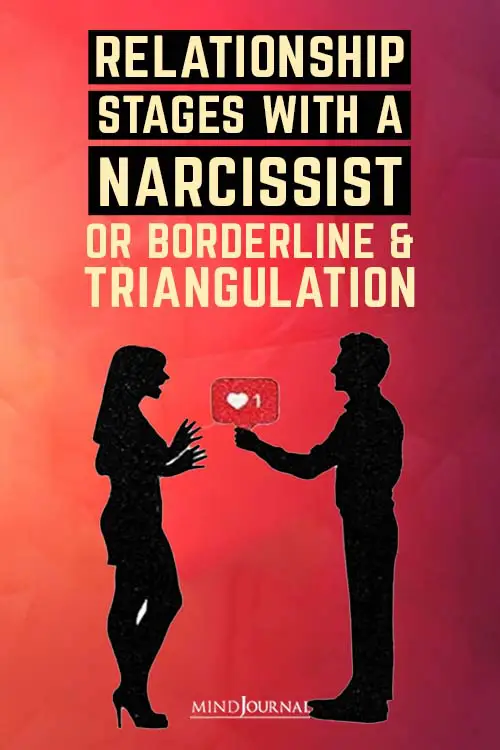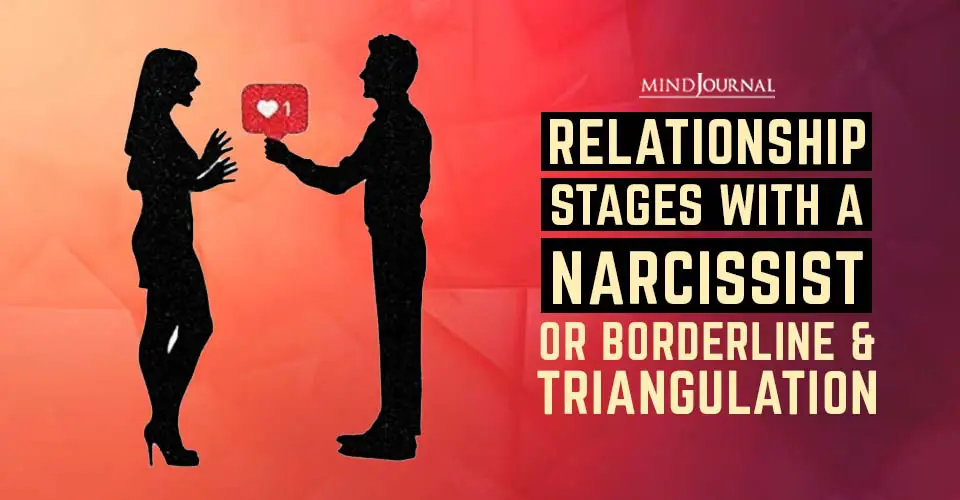So you thought you’d finally met the woman or man of your dreams. Sure, they came on a little strong at first. The compliments seemed a bit excessive and even premature. Ignoring that nagging voice in your head, the relationship developed at a fast pace, faster than most of your other relationships and friendships.
At some point, perhaps you questioned their sincerity and insta-adoration? Maybe you even had doubts about them such as, “Is this person psycho or is it love at first sight?” After all, how can someone really know you well enough after just a few weeks (or a few days) to see all of your admirable qualities in such technicolor magnificence? How can someone who barely knows you seriously love you in such a short amount of time and be willing to commit to you so quickly?
The answers are they don’t and they can’t. You were being drugged with flattery or love-bombed.
A client once asked, “Well come on, what guy wouldn’t fall for a beautiful woman who says you’re the most amazing man she’s ever known and best sex she’s ever had?” Actually, quite a lot of men and women don’t fall for it. In fact, they become sceptical and concerned especially if the compliments are way over the top and they’re being pressured to make a fast commitment (e.g., going engagement ring shopping after only a week or wanting to move in together right away).
Relationships with narcissists, borderlines, histrionics, sociopaths
— whatever the DSM classification may be — begin in reverse.
Meaning the relationship starts with a really intense, decadent dessert, and by the relationship’s end, you’re dumpster diving for the measliest scraps of sustenance. A relationship between two emotionally mature individuals with boundaries and healthy senses of self develops steadily over time and builds up to dessert after pesky little things like friendship, intimacy and trust have been established.
Not so with narcissists and other emotional predators and con artists. They’re like the stereotypical used car salesmen or saleswomen of relationships. For example:
Well hello there, Carl/Connie Codependent, do I have a deal for you today! Only someone as smart, savvy, sophisticated, cultured, travelled, intuitive, honest, loving, handsome, beautiful, sexy, talented, blah, blah, blah as you can see what a GREAT opportunity this is. And because you’re soooooo special to me, I’m going to offer this deal to you and only you (wink, wink, nudge, nudge).
Your life will never be the same if you hitch your wagon to my star. Together we’ll create crazy works of genius! What do you mean it sounds too good to be true? I thought you were more intelligent than that? It’s okay, I forgive you for doubting my motives. Now, I’ll just need you to sign here, here and here. Don’t worry about that, it’s just the fine print. Yes, and the devil is in the details.
Related: Narcissus And Echo: The Heartbreak Of Relationships With Narcissists
Now, if an unscrupulous salesperson slithered up to you at the local used car lot and laid it on nice and thick like that, wouldn’t you reflexively raise an eyebrow to their patter? You’d wonder, and rightly so, if the salesperson was trying to unload shoddy goods for their own personal gain at significant cost to you. No matter how shiny and attractively presented a narcissist might appear to be at first glance, under the hood they’re all lemons. And not the plump, juicy ripe lemons from which you can make lemonade. They’re the hard kind that only yield a few drops of juice even when using an industrial-grade juicer.
It’s a painful thing to accept once your narcissist reveals who they truly are. Seeing behind the mask may cause you to go into extreme denial. How else could you stay after that, right? If you don’t understand the dynamics at play, it’s difficult to comprehend how things deteriorated from the initial intense love fest you shared with your narcissist to being vilified and tossed away onto the scrap heap. It’s actually pretty easy to grasp once you know how relationships with narcissists and borderlines begin, develop and devolve. Abusive personalities repeat these patterns over and over again with each new target and relationship.
The Relationship Stages With A Narcissist
There are three predictable relationship stages with most narcissists, borderlines, histrionics or sociopaths: Idealize, Devalue and Discard. Eleanor Payson describes this extremely well in The Wizard of Oz and other Narcissists.
Idealization stage
First, there is the idealization stage in which you can do no wrong. You’re unlike any other man or woman they’ve ever known. You’re better, kinder, smarter, more talented and more loving. Only you can truly understand the narcissist’s pain and see into their misunderstood little black heart. You’re her hero or his angel — not like all those past lovers who were so nasty and abusive to the perennial victim, Ms. or Mr. Narczilla.
The idealization stage with the narcissist is when the love bombing occurs. Love bombing is a term borrowed from recruiting techniques used by cults. Love bombing typically only works on individuals who are vulnerable to it. Predators like easy targets. If you’re not easily charmed or manipulated, most predators will leave you alone.
Related: The Empath, The Narcissist And The Brutal Reality Of Their Toxic Relationship
What makes someone an easy target?
1. Family Of Origin Issues That Caused You To Develop Codependent Traits such as an intense desire for approval, acceptance, a sense of belonging and a fear of being alone. If you didn’t get the love and validation you needed as a child from your parents, you probably still crave it as an adult, but seek it through intimate relationships. If you don’t learn how to provide these things for yourself, you’re more likely susceptible to the superficial charm of narcissists and other abusers.
Instead of thinking, “Whoa, this is too much too soon” when the love bombing begins, it feels like basking in the sunshine after a long cold winter. You want to believe you’ve finally met someone who sees you and all that you have to offer. The narcissist or borderline does see what you have to offer — a need to be needed and a high threshold for abuse — and then sets about exploiting it and you.
2. You Experienced A Recent Loss such as the death of a loved one, job termination or some other significant life stressor. If you’re in the throes of grief or a sudden transition, it may cause you to ignore red flags that otherwise might have registered if you were in a stronger emotional state.
3. You Possess The 3 N’s: Nice, Naive and Non-Confrontational. Individually, these qualities increase your vulnerability to narcissistic abuse. Having all three multiplies the degree of risk and puts a bulls-eye on your forehead. It’s nice to be nice, but don’t confuse being nice with being a doormat. A certain childlike innocence is good quality, but not if it blinds you to the fact that there are bad people in the world who will purposefully and maliciously deceive and hurt you.
Not everyone has a good heart or a better nature deep down inside. Some people are fundamentally rotten to the core. There are rattlesnakes walking around in human suits. Finally, prepare to be bulldozed if you’re conflict avoidant. Peacekeeping and appeasing aren’t the same thing. Furthermore, it’s often healthy and right that a tenuous “peace” not be maintained. Especially if it means tolerating abuse and treachery.
Related: The Relationship Patterns of the Narcissist: Know the Signs
At the zenith of the idealization stage, you enjoy your time in LA-LA-Land, except every now and again, a dark cloud blocks the sunshine. An inexplicable rage episode occurs out of nowhere. Inexplicable as it may be, the narcissist (or you) will explain it away — or just pretend like it never happened.
Typically you won’t be the target of blame for your narcissist’s first tantrums, rage outs and pout outs. She or he will tell you they were “triggered” by something you said or did that reminded them of their horrid, old ex. You really must be more careful next time not to do or say anything to upset your fragile, delicate narcissist! Tsk, tsk! Or, the episode will be blamed on a mean boss, a mean co-worker or the mean next-door neighbour who is suing your narcissist because he went onto the neighbour’s property and cut down trees without permission. Mean, mean old neighbour!
What’s really happening with these initial infrequent incidences?
The narcissist is testing your limits — in other words, how much of their shit are you willing to tolerate? What and where are your boundaries? Will you defend and enforce your boundaries? Or will you capitulate to keep the peace and the narcissist’s “love” no matter the price, including your dignity? Eventually, the narcissist will stop blaming outsiders for their bad behavior and start blaming you. Cue the devaluation stage.
Devaluation stage
What goes up (you being hoisted atop the narcissist’s pedestal) will eventually be torn down (by your narcissist, of course). Why? Because you disappointed your narcissist, silly!
You didn’t provide an endless supply of love, adoration and nurturing. You didn’t make them an overnight success — you held them back all those years by providing a stable home life! You took askance with being raged at and called names. You began to see your narcissist more clearly and realistically. You wanted the love and support to be bidirectional in the relationship.
Asking or expecting reciprocity from your narcissist is the kiss of death. She or he will occasionally give, but only if it makes them feel or look good to do so, and it always comes with a price. Narcissists don’t give without the expectation of getting, and they expect to get more than they give. It’s narcissist math.
The narcissist may also begin to devalue you simply because she or he is bored. Stability is boring. Coziness? Contentedness? Comfort? Boring, boring, boring. If the narcissist isn’t distracting themselves with some drama, conflict, lawsuit, affair, self-aggrandizement or swindle they might actually have to look at and deal with themselves. Then they might just realize that they and they alone are the architects of their misery and they can’t have that. Therefore, if they’re feeling bored or disappointed with life or themselves someone needs to be blamed.
Related: 12 Signs You Are Married To A Narcissist
Discard stage
Once the devaluation stage begins, the discard is inevitable. It may take a few months, years or, in some cases, decades, but it will happen. There’s no going back to the idealization stage once you’ve seen behind their mask and their all too human feet of clay — no matter what empty promises and lies your narcissist tells you. You might get some love bombing in the form of a Hoover if she or he isn’t quite ready to discard you. This is usually because the next source of narcissistic supply hasn’t been secured yet.
Your narcissist may promise things will be better if only you do more, sacrifice more, give more, don’t hold them accountable or expect anything from them. If you’re determined to make it work with your narcissist, despite all indications that it’s time to jump out of the plane and pull the ripcord, you have a couple of options at your disposal to delay the inevitable.
First, you must accept the narcissist for the severely emotionally handicapped and integrity challenged person that they are. She or he isn’t going to have an epiphany and suddenly become an insightful, soulful, decent human being that possesses empathy and a conscience. They’ve spent their entire adult lives avoiding just that. Not going to happen.
Second, you must also unflinchingly accept their abuse. And don’t ever tell them that their behaviour is abusive. Doing so makes the narcissist feel bad about her- or himself. Remember what happens when the narcissist or borderline feels bad about themselves? They blame someone else (i.e., you). Plus, labelling their behaviour abusive means you’re not accepting them for who they are. Got it?
You may not get discarded right away if you tolerate the abuse and look the other way when your narcissist seeks fresh supply elsewhere, but there is no equal, mutual, healthy adult relationship to be had with this person. If you accept these conditions please understand that your narcissist won’t appreciate you or think, “Wow, husband/wife/boyfriend/girlfriend must really love me to give me such free reign and to accept me as I am.” Quite the opposite, in fact. Your narcissist will have even less respect for you as you further degrade and humiliate yourself in order to maintain the relationship at any cost (e.g., staying in the relationship while she or he openly has affairs or becomes physically violent).
Your narcissist won’t see you as loving and committed to him or her. This is when your narcissist will become more sadistic than you could ever imagine. Why? Because you have shown your narcissist there is no limit she or he can violate that will cause you to withdraw your love. Please don’t do this to yourself. Take whatever shred of self-esteem you have left and get out. If you have no shared children or assets, go ghost. Complete radio silence.
Don’t take the bait and respond to angry messages or feigned remorse. Narcissists and borderlines don’t feel genuine remorse. They feel sorry for themselves once they finally reap the consequences of their bad behaviour, but that’s not the same as feeling remorse for having hurt others. As Rhett Butler said to Scarlett O’Hara in Gone With the Wind, “You’re like the thief who isn’t the least bit sorry he stole, but is terribly, terribly sorry he’s going to jail.”
Related: 19 Signs You Were Raised By a Narcissistic Mother or Father
But, but your narcissist seems really sincere when they say how much they miss you? Okay, there may a grain of truth to that. However, it would be more accurate to say that your narcissist misses the ease you brought to their life and the supply you provided. That’s not love and you deserve better. Continuing to engage with your former narcissist in any fashion allows her or him to continue to feed off of you. It’s time for you to take back your power and resources for yourself. Let the narcissist siphon resources elsewhere, or, heaven forbid, finally do for themselves.
In the end, once a new source of supply (e.g., ass-kissing, financial support, novelty sex, someone who believes the narcissist’s false self is the real self) has been secured, you will be discarded. New supply is tastier, juicier and more robust than old depleted supply who has seen behind the narcissist’s mask. Whether you realize it or not, you’ve probably never been à deux in your relationship. Narcissists and borderlines triangulate. It’s important to understand this because a narcissist typically won’t discard until she or he has a new source of supply, a third party with which to replace the old supply. As the devaluation stage progresses, the narcissist seeks out and grooms fresh supply. Once they’ve found their new hero-angel, that’s it.
The Triangle
Given that narcissists are insatiable, needy vortexes of suck, there’s never enough attention, love, comfort, emotional breast milk or any resource that he or she desires. Like an alcoholic who hides vodka bottles around the house, narcissists require back-up emotional supply.
In Karpman’s drama triangle there are three roles: the Victim, the Persecutor and the Rescuer. Two versions of the triangle exist; the narcissist’s version and the objective reality version. The narcissist sees her- or himself as the Victim, the person they’re abusing and exploiting (the old supply) as their Persecutor and their new supply (e.g., the mistress/manstress) as their Rescuer. In reality, the narcissist is the Persecutor, the new supply is their enabler/accomplice (unwittingly or wittingly) and the old supply is the Victim.
Related: How Narcissists Make You Physically Sick and 5 Ways To Restore Your Health
At the beginning of your relationship with your narcissist, when you were the new supply/Rescuer, you probably aided and abetted your narcissist in hurting your predecessor. You were once the hero or angel, and now you’re the big old meanie who doesn’t appreciate your Narcissist anymore. The new supply is the answer to the narcissist’s problems just as you once were. Rinse, wash, repeat.
You may be cast again in the role of the Rescuer if you’re foolish and self-destructive enough to hang around and wait for your narcissist to become disappointed or bored with the current new supply. But remember, even if that happens, the narcissist will only become disappointed or bored with you again and around and around you go. Just step out of it.
What about the new supply/Rescuer? She or he is most likely another hapless codependent who sees your narcissist as a poor, downtrodden, unappreciated victim. Don’t envy the new supply. The narcissist will do to them what the narcissist did to you. Alternately, the new supply/Rescuer may also be another narcissist, borderline, histrionic or sociopath who saw your narcissist coming from light-years away and then mutual love bombing commenced.
If the new supply is another disordered predator or conniver, the two of them will eventually cannibalize one another, in which case maintain a safe distance and pop some popcorn. Or, you can heal, move on with your life and not look back. Okay, okay, enjoy a little schadenfreude then move on and don’t look back.
Originally appeared on SHRINK4MEN
Written by Dr. Tara J. Palmatier
Republished with permission.

Relationship Stages with a Narcissist or Borderline and Triangulation









Leave a Reply
You must be logged in to post a comment.